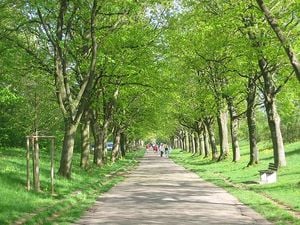I, we, world

What problem does a CAN solve? Some of us have been talking about building a new system for decades. We've been working in siloes developing ace tools for solving one bit of the puzzle each. We rarely collaborate. When we meet, we recognize each other as the usual suspects, complain about our lack of diversity, then we promote our bit of the puzzle, then go home. Those outside our bubble don't know we exist
Mainstream politics is stuck in a growth economy model. Public resources go that way. Mainstream media serves that
The planet is burning. People are either acutely or dimly aware. They do or don't protest. But either way they don't know what they themselves can do to make a difference to the outcome. They feel powerless and within this system, they are powerless.
Human beings are living stressed lives with little or no time to bring their attention to what is urgently needed. Those that cannot process the chaos of modern life, suffer mental health problems. If they are not helped, they cause knock-on problems for their community. Even those that manage, are permanently vulnerable to the trappings of the hamster wheel.
Beliefs we hold:
The Alternative UK are holding to some beliefs about the nature of the social reality we're facing, which have emerged out of their work.[1] These include:
Connecting I, We, World[edit | edit source]
- We should move from homo economicus to an awareness of the full bio-psycho-social-spiritual human being. To do that, we should always take care to make as much space for complex human awakening and trust-building, as we do designing and constructing the systems and institutions around us.
- Voting every five years is only entry-level democracy. This is an era of entering into high-level participation by the people, making substantive decisions about their immediate conditions.
- Our actions have an impact upon the planet. We are re-calibrating our personal needs and capacities as well as our social systems to reach carbon neutral by 2025.
FROM: homo economicus enslaved to the growth economy[edit | edit source]
CANs start with a new concept of the human being at the heart of politics.
20th Century politics conceived of man as homo economicus – requiring a roof over his head and a job, After which, as Maslow suggested, everything else would follow naturally. Unfortunately, if we don't design for the whole hierarchy of development, too many get stuck simply in the race to get their physical needs met.
TO: a complex bio-psycho-social-spiritual-playful human[edit | edit source]
In fact we are complex, bio-psycho-spiritual-playful human beings that are constantly unconsciously searching to get our essential needs met – see above. The more we can achieve this, the more we become capable of more creative, responsive lives.
However we live stressed, depleted lives, without time and space to get our needs met in a balanced way. Instead, through advertising, business has contrived to get our needs met superficially by consuming. We reach for a new handbag to achieve status, we drink Cola to get belonging, we join Facebook or Tinder looking for intimacy. Because we experience momentary satisfaction, we keep coming back for more.
FROM: top down, tail-wagging, democracy[edit | edit source]
We all live in thrall to power systems that deny us any collective agency. There are no easy ways to decide, across towns or cities, how we want to live together.
There are too many atomized, alienated citizens unable to find expression for their skills or capacities. Instead, their energy is harnessed by mechanistic jobs, their minds by media that triggers fear and anxiety.
TO: engaged, connected, empowered people[edit | edit source]
CANs begin to answer the problem of power and agency by opening spaces of meaningful connection between citizens. At once helping them to engage in conversation about their shared lives and connect with the many solutions to the crises already available.
Through a series of collaboratories, cohorts of 100 citizens at a time, ask themselves what kind of future they could look forward to. Working with the social-entepreneurs, cooperatives and commoning hubs in their locality, they begin to work out a plan to help the community to flourish while becoming healthier, happier and more sustainable.
These networks of connected citizens become the source of new democratic processes, from Community Assemblies to participatory budgeting.
FROM: a globalized growth economy killing the planet[edit | edit source]
Most citizens encounter globalization as an overwhelming force that drives wages down, homogenises culture and disempowers national governments to work on behalf of their citizens.
TO: cosmo-local communities reconnected to planet[edit | edit source]
CANS connect people directly to the planet.
Firstly by providing access to the best solutions that are being prototyped all over the world..
Secondly by reconnecting people to the land they live on – the source of their resilience and flourishing,
Thirdly though connecting CANs to CANs globally, The fractal growth of people waking up to their conditions, connecting to themselves and to each other, building new local economies – is unprecedented.
Cosmo-localization describes the process of bringing together our globally distributed knowledge and design commons with the high-to-low tech capacity for localized production. It is based on the ethical premise, drawing from cosmopolitanism, that people and communities should be universally empowered with the heritage of human ingenuity that allow them to more effectively create livelihoods and solve problems in their local environments, and that, reciprocally, local production and innovation should support the wellbeing of our planetary commons.
...more[2]
References
- How do you make a Citizens Action Network (CAN)? - The Alternative UK, slideshare.net/theplayethic